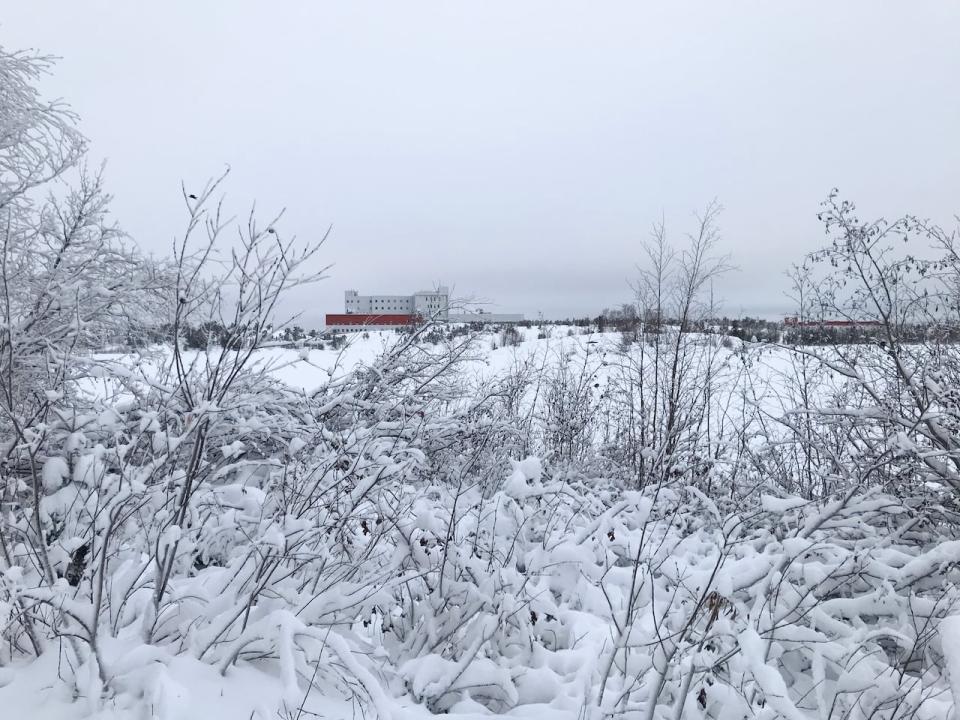Health consultant says N.W.T. needs flexibility in what it offers nurses to compete with agencies

A former director with the N.W.T. government says the territory needs to be flexible and creative in what it can offer nurses in order to compete with private agencies.
Scott Robertson is a registered nurse, health economist and health consultant. He previously worked as a director with the N.W.T. health authority and led the COVID-19 vaccine rollout.
He said the territory has always relied on temporary staffing for health care, known as locums, and it needs to find a way to do this without relying on private agencies. To accomplish this, he said, the government needs to find out why nurses are choosing to work for agencies.
"Not everyone wants to come here and live here full time, that's okay," he said.
"But we want to be able to be a place that people want to come, we want to be able to have a sustainable healthcare system. Agency nurses aren't ideal, but if we want to compete with agencies, we need to start looking at what are they giving people that make them want to work for them, versus work for us directly?"
Earlier this week, an employee with the N.W.T. Health and Social Services Authority told CBC the presence of agency nurses — who pay union dues and are brought in at a cost sometimes double or triple what locum nurses make — is hurting the morale of health staff.
Locum nurses vs. agency nurses
The difference between a locum and an agency nurse is that a locum is employed by a health authority and would fall under all the same rules of the collective agreement and policies of the territorial government.
For agency nurses, those rules don't apply, because they are technically contractors.
Robertson himself worked as an agency nurse in Nunavut around 20 years ago.
He said at the time, the money didn't work out to him making significantly more than in his old job as a community nurse — but there were other benefits, including scheduling. The agency was also willing to fly him wherever he needed to go, something the government couldn't do.
"They're bound by these rules, they're bound by these policies, they're bound by the collective agreement — they have to follow these things," he said.
Robertson said the single collective agreement involving front-line health care workers and all government employees makes it harder for the N.W.T.'s health department and health authority to offer perks that are attractive compared to nursing agencies.
This was reflected in 2022, when the union blocked a bonus package for health care workers because other members wouldn't be eligible.
The health minister at the time and the union blamed each other for the package not being approved.
In the end, the union established a memorandum of understanding that did grant bonuses to front-line health care workers.
In an email, Gayla Thunstrom, president of the Union of Northern Workers, said there are appendices and memorandums that allow for agreements that can accommodate the very "specialized type of profession" of health care workers.
Robertson said there has been discussion of a separate collective agreement for front-line healthcare staff.
"We can't just shut down a hospital when people are away from work," he said.
"Someone that works in an office downtown and they're away for a few days and the data entry gets backed up for a couple of days, nobody dies."
The territory and the union are in the midst of negotiating a new collective agreement. The last update on the negotiations came on Dec. 13, 2023 with the union stating the parties were using mediation.

Stanton Territorial Hospital viewed over Yellowknife's Frame Lake. (Sara Minogue/CBC)
Continued impacts of COVID
Robertson said a lot of the impacts the territory, and country, are dealing with are the after effects of COVID.
"We had staff that were denied their vacations for a year or more," he said.
With more leaving the profession and those remaining being forced to work longer hours and not take vacation, Robertson expects the pool of health care workers will keep draining — and reliance on agency nurses will increase.
"We're already way behind the curve in this and it's going to get worse, it's going to become more expensive," he said.
Robertson said nurses should not be blamed for the situation the health care system is in.
"It's like going into a restaurant and blaming your server for the cost of the meal," he said.
"Workers, like any other worker, have the right to choose what works for them."
'Insidious form of privatization'
Ivy Lynn Bourgeault, who leads the Canadian Health Workforce Network, shares that sentiment.
"I think in the media, a lot of the attention has been on the nurses — like, 'Why are the nurses choosing to go into the agencies?' And I think that's one part of the story. The other part of the story is the agencies, because not all the money is going to the nurse," she said.
Bourgeault describes the concept of agency nursing as an "insidious form of privatization."
She said agency nurses are needed in a lot of parts of the country, but a solution could be a more public model, such as a not-for-profit agency.
Lesa Semmler, the N.W.T. health minister, said the territory is trying to attract more nurses by offering incentives including covering the cost of travel for family members visiting a frontline healthcare worker in the territory working over the holiday period.
Bourgeault said some of those measures could help, but more still needs to be done.

